Explicit Functions: y=F(x)
Implicit Functions: F(x,y)=0
-
All X’s and Y’s are on one side!
-
Explicit functions can always be written as implicit functions
-
When looking for the rate of change of an implicit function, we have to to implicit differentiation
Implicit Differentiation
Example
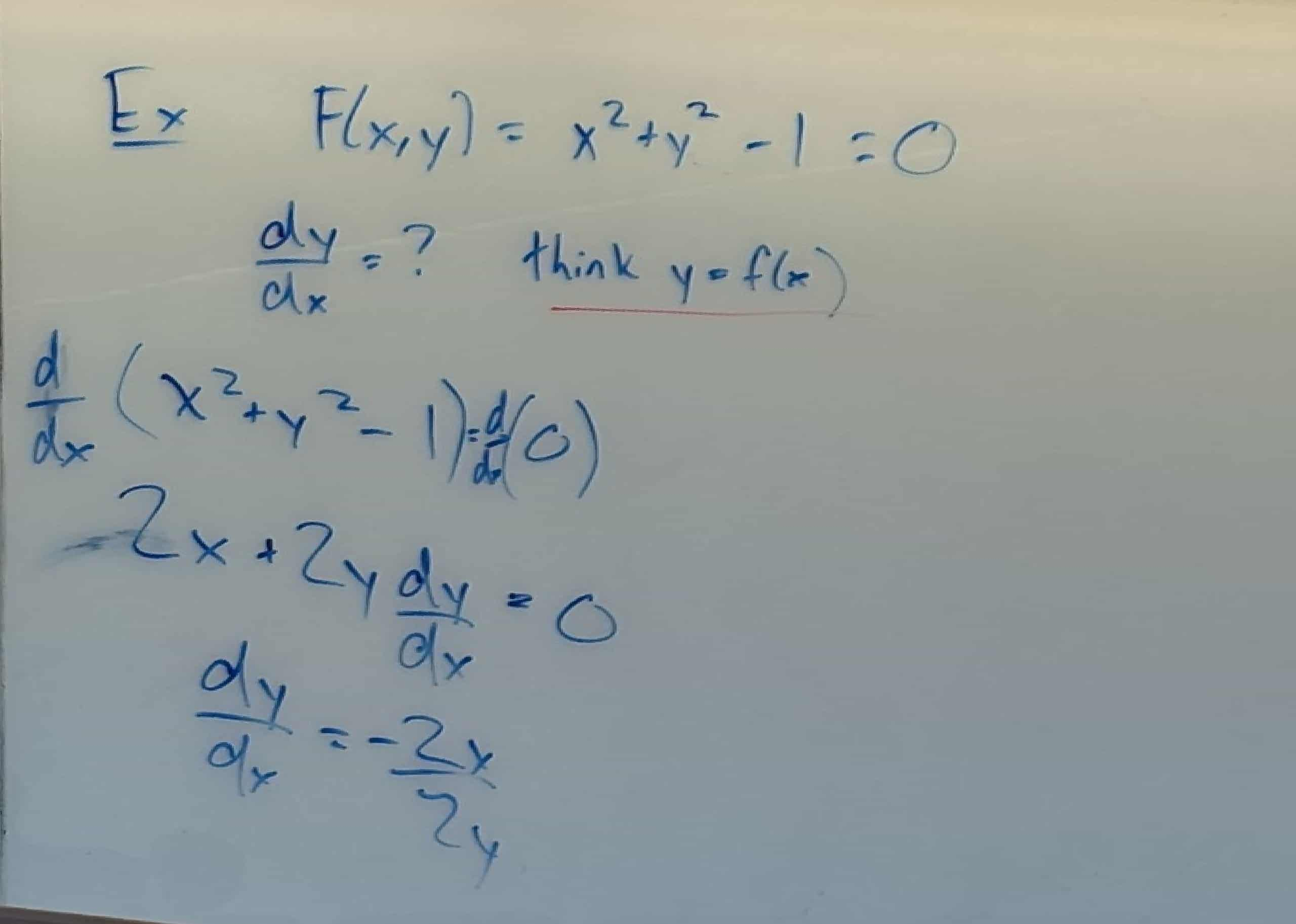
Remember, that y=f(x), or whatever term you are differentiating in terms of.
- Where we are differentiating by dx, Y acts as a functions f(x).
- From there, we chain rule our f(x) function, by derivative of outside times derivative of inside
Example
- Here, look at the tree!
- F is a function of x, y and z
- X stands on its own (first term)
- Y does not depend on X! So it has zero rate of change (second term)
- Z depends on both X and Y, but we are differentiating in terms of X, so it’s all we care about! (Last term)
- Re-arrange and solve for dz/dx!
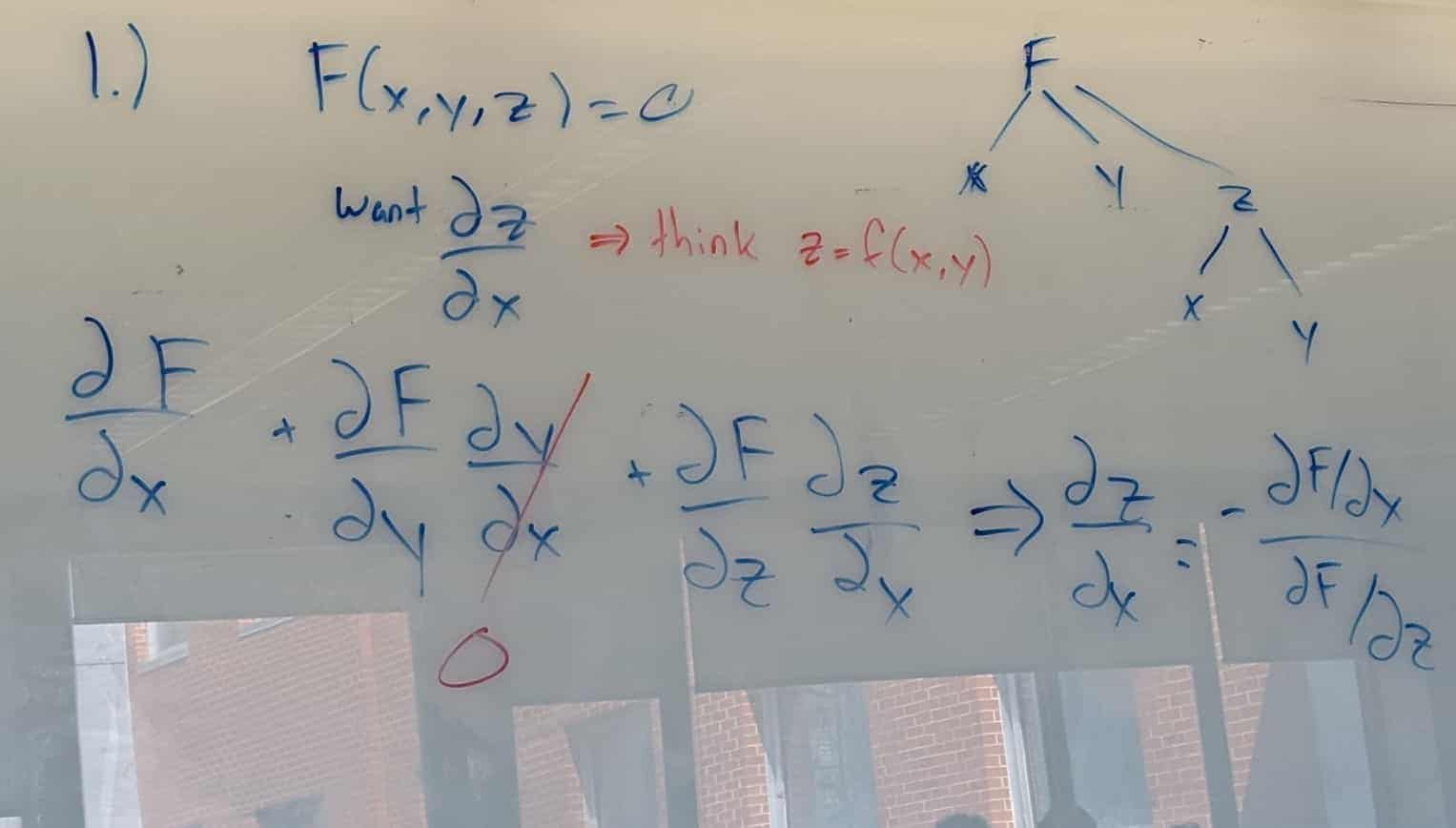
Example to try for later!
- Solve for (dx/dz)
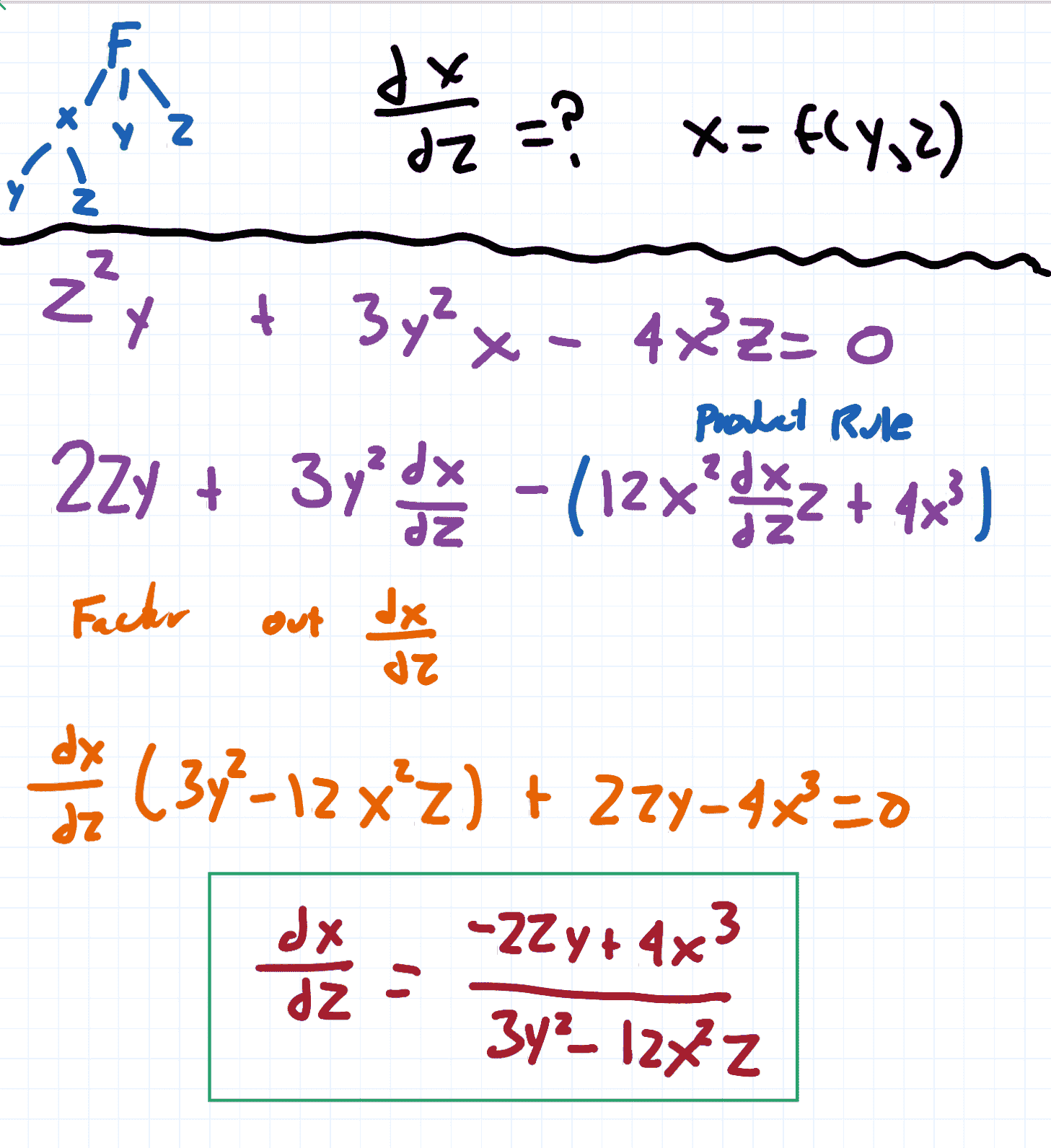
Gradients and Directional Derivatives
Gradients
- Gradient of a function is a vector whose components are partial derivatives!
(The upside down triangle is known as the “nabla”, which is the gradient of F)
2D
3D
Example
w = f(x,y,z) = xy +cos(z)
Directional Derivatives
- Rate of change of F in a direction of û
- û can be anything chosen!
Generally,
Example
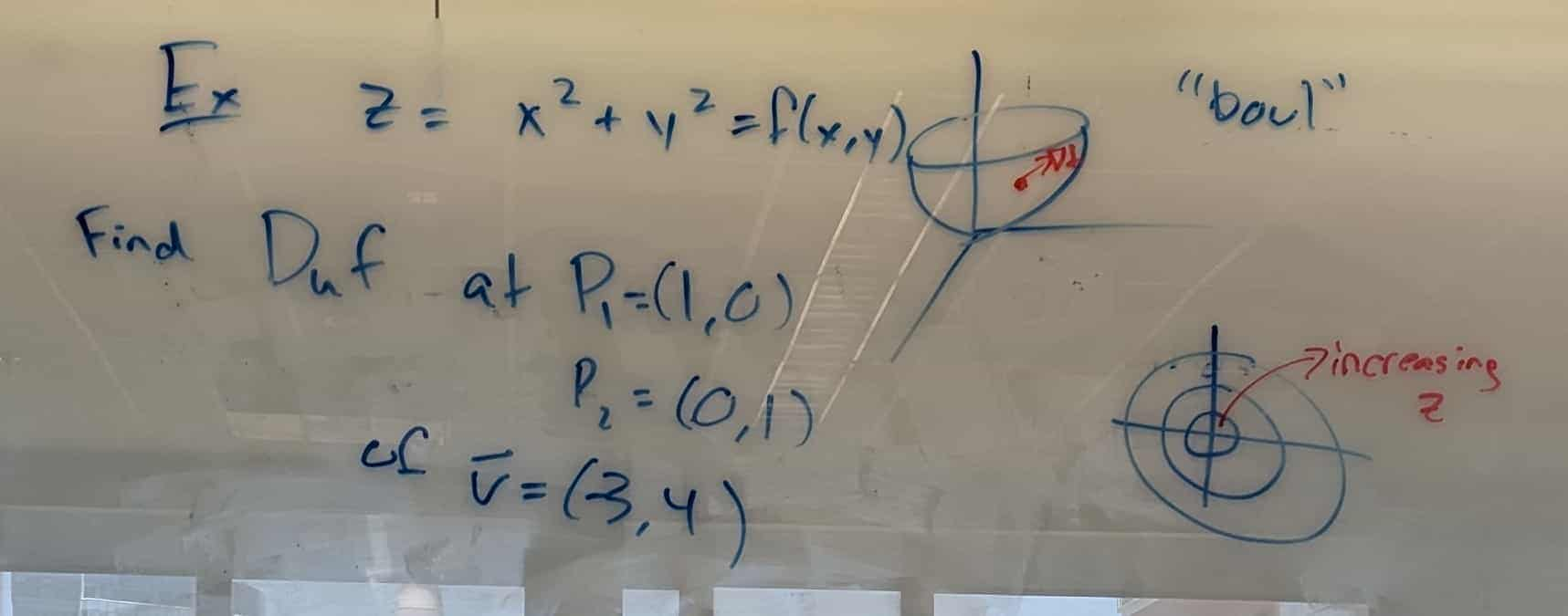
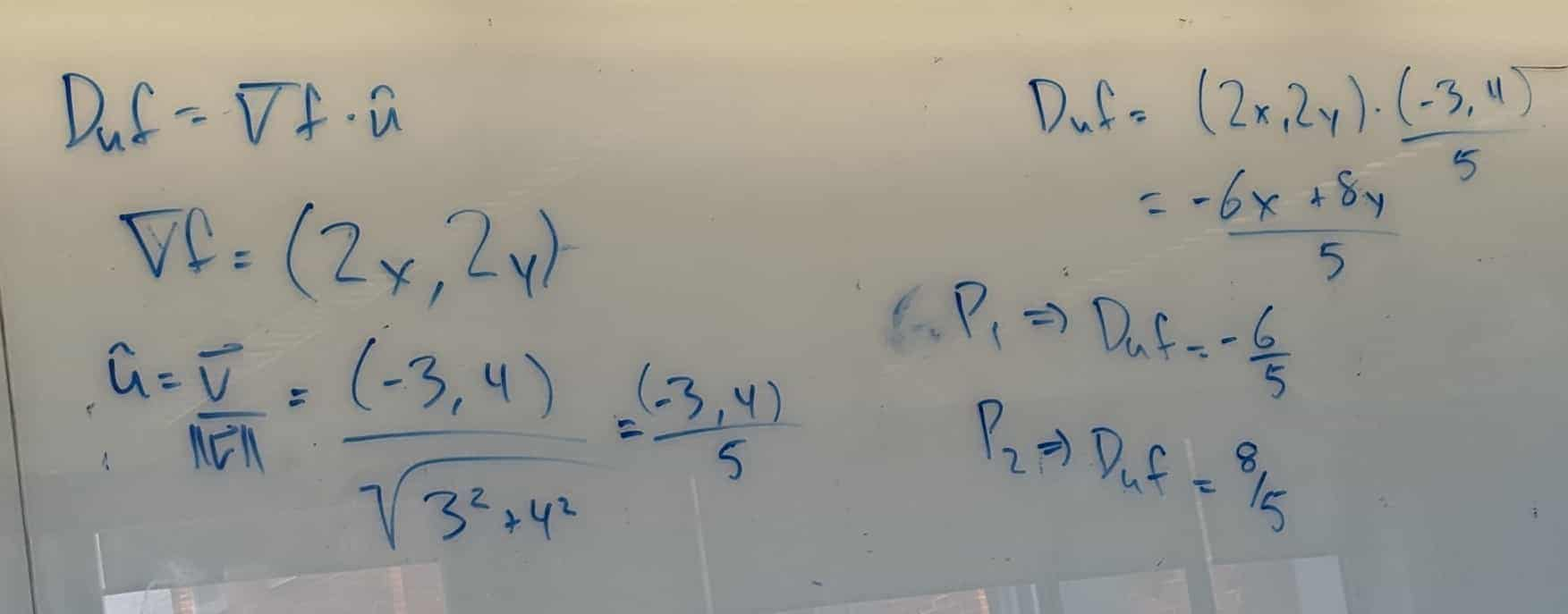
- Gradients are perpendicular to your level curves, and point to higher levels!
- Unless the directional derivative is NEGATIVE. It then means you are pointing downwards
- Which in this case, -(6/5)th is.
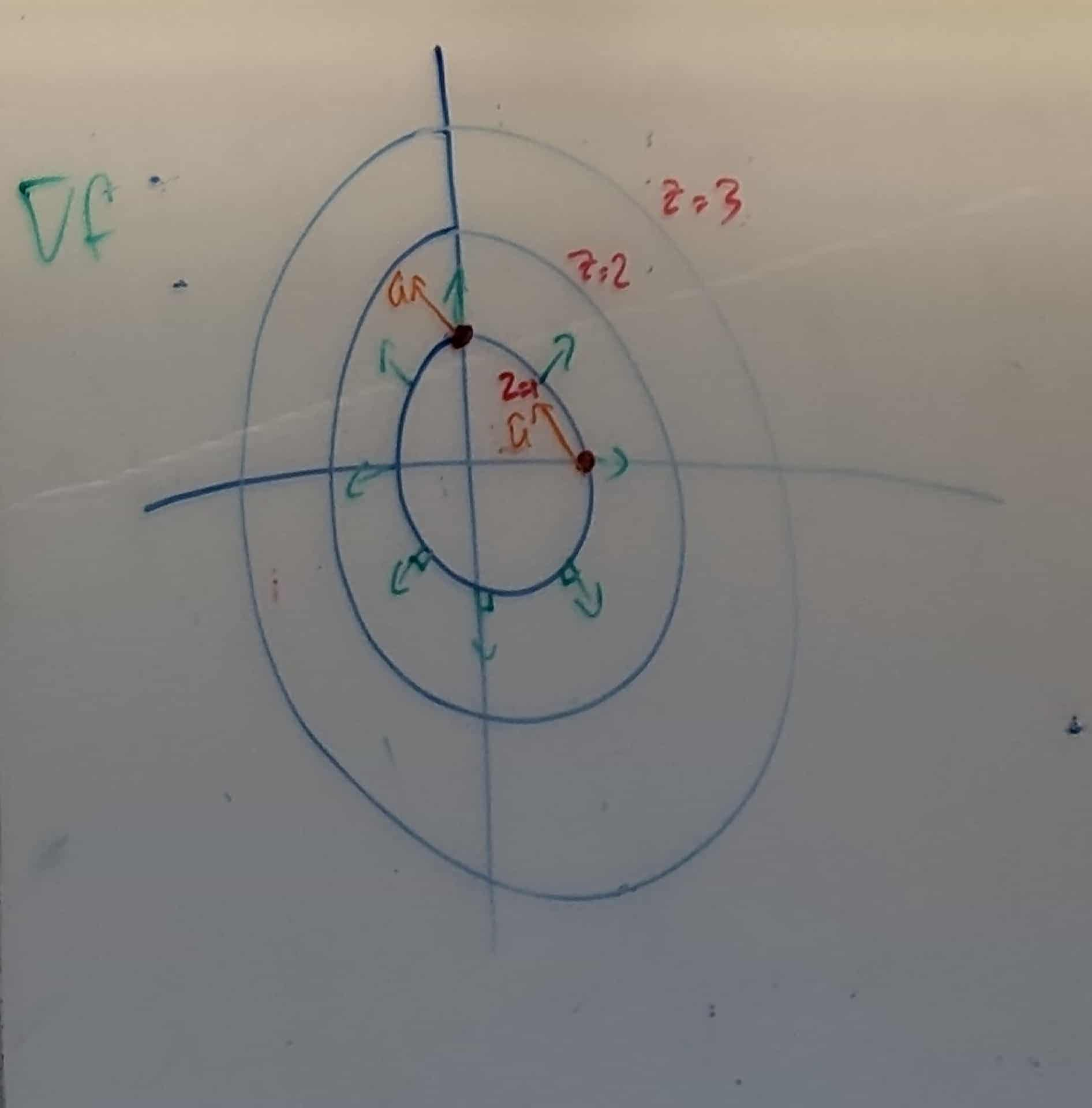
Here’s a slightly squished graph of that problem!
- Blue lines are the level curves lines
- Green lines are the upwards gradient lines
- Orange arrows are the û vectors calculated
Some quick questions about it..
-
What is the direction of steepest ascent here? Parallel to the gradient, going upwards! Direction of gradient ➟ (2x, 2y) I’m at (1,1) ➟ (2,2)
-
What is the direction of steepest decent here? Antiparallel to the gradient, going downwards! Direction of gradient ➟ (-2x, -2y) I’m at (1,1) ➟ (-2,-2)
-
What is the direction of no ascent or decent here? Perpendicular to gradient tangent to level curve You’ll have F, and you’ll need to solve for û
The equation of a plane that contains the point (x0,y0,z0) with normal vector →n=⟨a,b,c⟩ is given by,
a(x−x0)+b(y−y0)+c(z−z0)=0